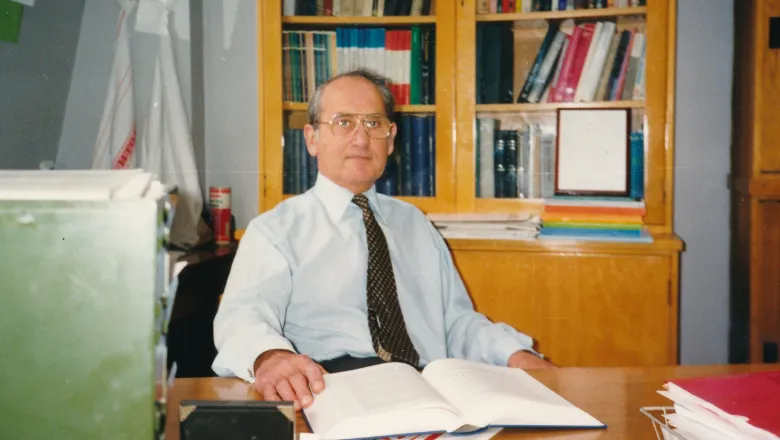25 January 2021
Professor Henry Arnstein 1924-2020
Tribute to Professor Henry Arnstein, former Chair of Biochemistry and Dean of the Faculty of Basic Medical Sciences at King’s College London.

Professor Henry Arnstein, former Chair of Biochemistry and Dean of the Faculty of Basic Medical Sciences, recently passed away on 2 November at the age of 96. Professor Arnstein was one of the world’s eminent biological scientists and fathers of molecular biology, who unravelled the fundamental biology of the cell, which has led to the revolution that is our modern-day molecular genomic science.
In the early 1960s, his interest in amino acids and proteins, the deciphering of the genetic code and the emergence of molecular biology, together with his collaboration with Bob Cox, who was studying ribonucleic acids, fused marking a new direction in his research that was going to last his lifetime – protein biosynthesis.
After working and studying at universities and research institutes worldwide, Professor Arnstein took up the Chair of Biochemistry position at King’s in 1965. In the early years at King’s, his research focused on the mechanism of initiation of protein synthesis and the production of active ribosomal subunits and messenger ribonucleoprotein complexes from mammalian sources. Later in the 1970s and into the 1980s, he continued his investigation of the control of protein synthesis by various stress factors, for example, heat shock.
As well as running the Department, he was active in College administration, participating in many committees, was a member of the Council and Dean, for some years, of the Faculty of Basic Medical Sciences. He became a Fellow of King’s in 1979.
Professor Arnstein retired in 1988. He supervised and mentored over 25 PhD students, as well as post-doctoral fellows, during his time at King’s, and published over 150 scientific papers. It is evident that his lab was a hive of activity with many scientists across the world and provided a springboard of opportunity for many budding scientists to a career in academia.
He will be fondly remembered by all staff who worked alongside him for his ongoing commitment to the field of molecular biology, among much more.
